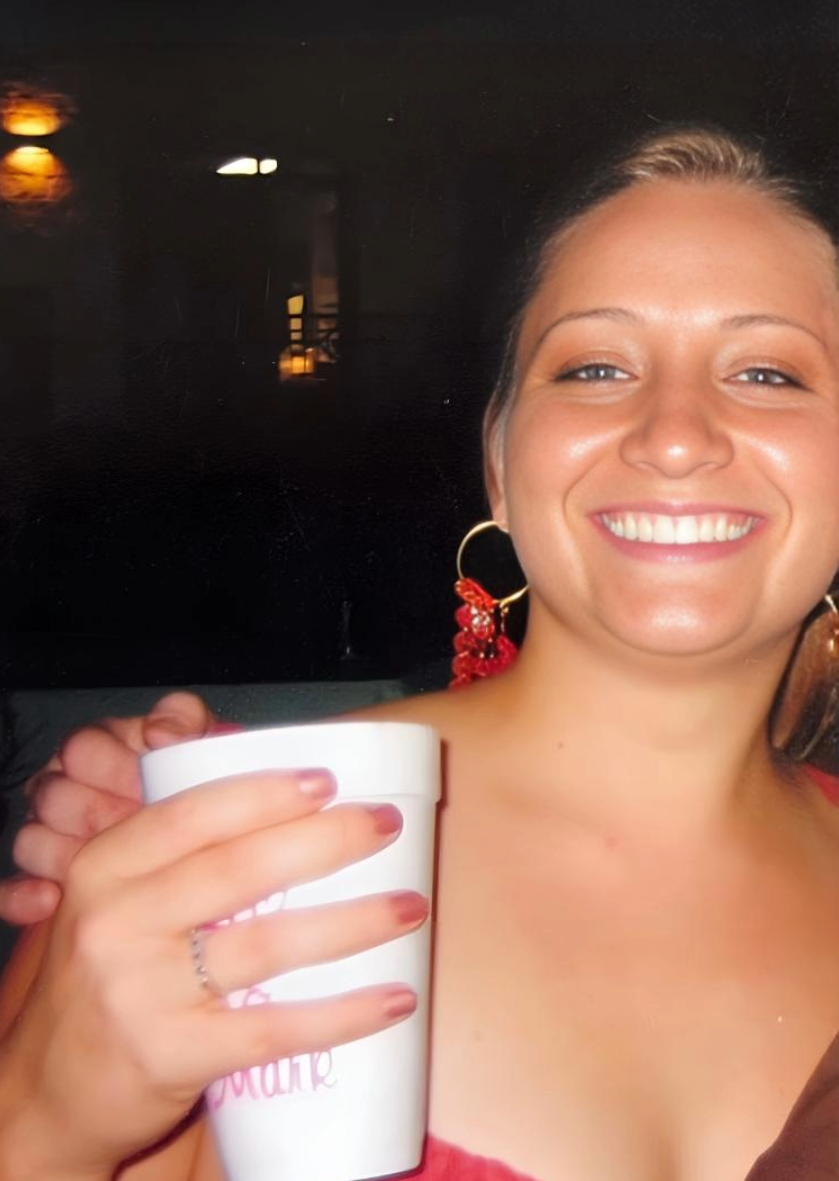Sincerely,
Ali's PCOS Journey
Early Struggles With Weight Gain
My story with PCOS started when I was 14. I was gaining weight slowly but steadily, and no matter what I did, nothing seemed to help. I tried everything—eating less, working out more—and when that didn’t work, I got desperate. I started starving myself, which quickly spiraled into binge eating. I didn’t know it at the time, but I was stuck in a cycle that PCOS was fueling the whole time.
The weight kept creeping up, and the harder I fought it, the worse it got. That led to a painful battle with binge eating and overexercising that lasted over a decade. It consumed me. What should have been some of the best years of my life were spent trying to fix something I didn’t understand and blaming myself for it.
At 16, I had my first period and then nothing for six months. Irregular cycles became my norm. Sometimes I’d go a whole year without one. Doctors ran ultrasounds and told me I had cysts on my ovaries, but reassured me it was “normal.” Turns out, it wasn’t.
I also had horrible acne. I was prescribed Accutane not once, but twice. It helped for a while, but the breakouts always came back. Because the problem was hormonal. And no one was talking about that.

College Dreams of Becoming a Dietitian
When I started college, I already knew I wanted to become a Registered Dietitian. Part of me hoped that maybe I’d finally learn the secret to weight loss—something I hadn’t figured out yet. But as I moved through my classes, it became clear that nothing I was learning was actually helping. I felt like a fraud. Like I didn’t belong in a nutrition program because of my weight. On top of that, I was dealing with crushing anxiety that sometimes made it hard just to show up to class.
In 2008, I was finally diagnosed with PCOS. I was 21. And despite being almost finished with a bachelor’s degree in nutrition from one of the top schools in my state, I had never even heard of it. I remember the nurse practitioner saying, “You have polycystic ovary syndrome, or PCOS, and you’ll need to watch your weight.” She handed me a brochure and sent me on my way. No explanation. No discussion about how my weight was connected to my ovaries. Nothing.
After finishing my degree in nutritional sciences, I knew I needed to keep going. I had so many questions and still no real answers, so I decided to pursue a master’s degree in nutrition and metabolism. I wanted to keep learning—to help myself and hopefully help others too. But what I quickly realized was that opportunities to study PCOS were nearly nonexistent. None of my graduate courses covered it. During my nine month internship to become a Registered Dietitian, not once did PCOS come up. And there wasn’t a single question about it on the credentialing exam.

The Study That Changed Everything
I graduated with my master’s degree a few years later, but I still felt like I hadn’t learned what I needed. I kept digging. I read everything I could find about nutrition, insulin resistance, and PCOS. The more I read, the more convinced I became that maybe we were giving women with PCOS the wrong nutrition advice altogether. Their metabolism is different—and that means they need a different approach. That’s when the idea for a Low Insulin Lifestyle started to form. I believed in it enough that I decided to pursue a doctorate so I could actually test it out.
Over the next five years, I took every opportunity I could to learn more about reproductive endocrinology. I was fortunate to be connected to an academic hospital where I had access to classes and labs focused entirely on reproductive hormones. That hands-on experience gave me a deep understanding of the hormonal imbalance women with PCOS face—and without it, I don’t think I would have truly become an expert.
I was also incredibly lucky to connect with a local reproductive endocrinologist who specialized in PCOS. I approached her with my idea to study the effects of a Low Insulin Lifestyle in patients with PCOS, and asked if she’d be willing to refer patients into the study. She said yes—and that moment changed everything.
The results from that first study were better than I ever imagined. I was able to present the research both in the US and internationally, and it led to several peer-reviewed publications. Even more exciting—the results were later replicated in a large, randomized controlled trial.

The Love and Support That Made It All Possible
After completing the study, I was accepted into a National Institutes of Health (NIH) Funded Postdoctoral Research Fellowship to continue my research in nutrition and PCOS. While completing this fellowship, I met my husband, Johnny, who is now the COO of Lilli Health. His love and support has enabled me to pursue my dream of starting a company to help teach women everything they need to know about nutrition, insulin resistance, and hormonal imbalance.
In 2021, my research led to a grant through the National Science Foundation I-Corps program, a competitive initiative for science-based solutions with real-world impact. That experience helped guide my journey from patient to scientist to CEO, and ultimately led to the launch of Lilli Health in 2022.
I am beyond thankful to say that it has been over 12 years since my last binge. When I look back on what were supposed to be the best years of my life, I see pain and frustration. If I had known at 16 what I know today, it would have changed my life. So I am launching Lilli to help you change yours.

If I had known at 16 what I know today, it would have changed my life. So I am launching Lilli to help you change yours.













